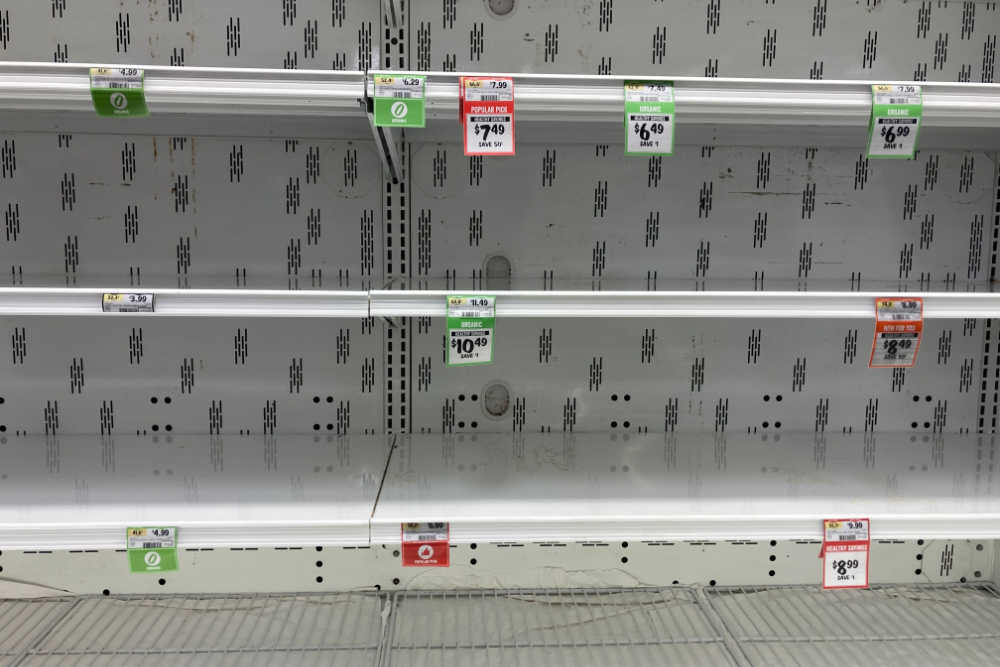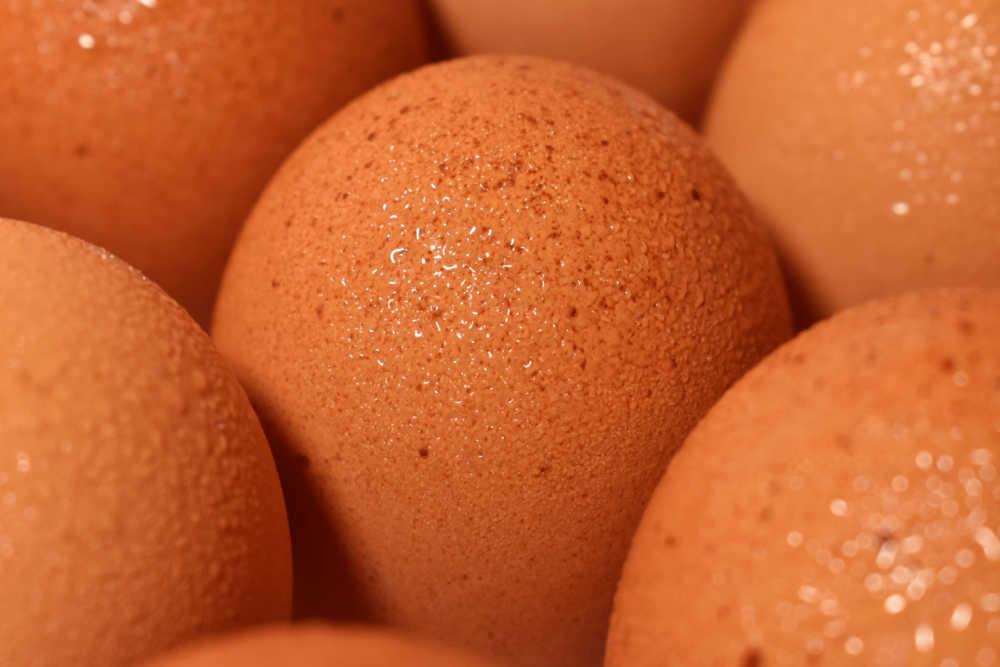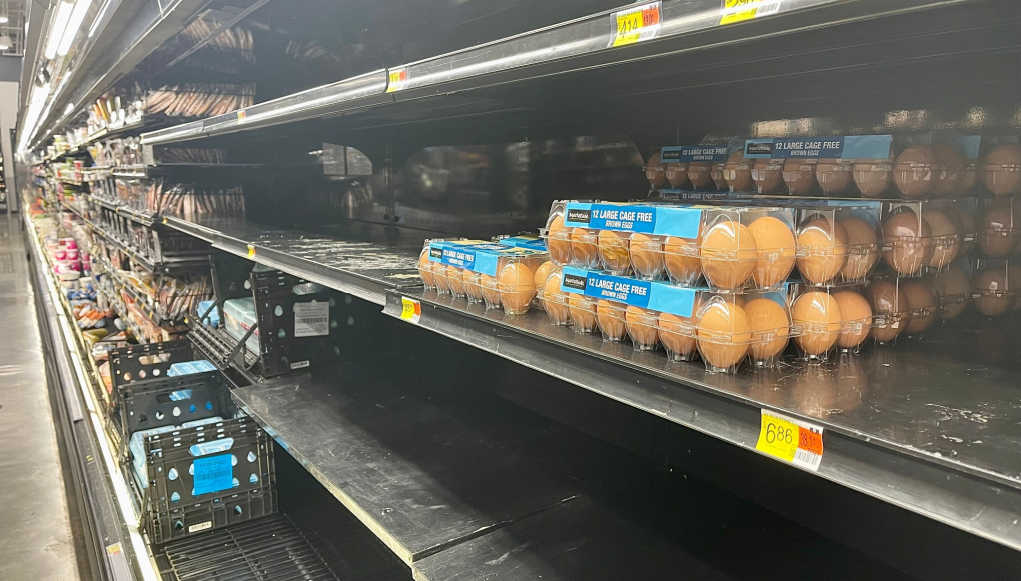With growing concern about the food supply chain, one particularly worrying issue has become a hot topic of discussion: the global egg shortage.
Not only is this causing prices for eggs to soar (or just outright not be available), but it is creating severe economic concerns.
It also makes it difficult or impossible for many people to access the eggs they need daily.
In this article, we’ll discuss everything you can do to help yourself and your community, whether you have to lay hens of your own or not.
Let’s get into it!
What To Do If You Have Laying Hens
你有最机会here if you’re fortunate to have laying hens.
If you aren’t sure what to do, these are some of our best pieces of advice to best benefit you and your community.
Incubate Fertilized Eggs for More Layers
If you have a rooster in your flock, consider incubating some of your eggs, even if they won’t be purebred, to increase your flock’s population or give or sell to your friends and neighbors.
No incubator?
No problem!
You can give away or sell your fresh fertilized eggs, and buyers will be happy to go through the work of incubating them.
Hatched chicks are generally worth more than fertilized eggs, but both are fantastic assets during an egg shortage.
Once the chicks are hatched, the countdown for eggs is on! It should take sixteen to twenty-four weeks (four or five months) before the pullets start laying their eggs.
Consider Using Fewer Eggs, Preserve Eggs
Whether you’re keeping all of your eggs for yourself or selling part of them for profit, it’s wise to cut down on your own consumption.
If you’re selling eggs, you have more inventory for more profit, plus you’ll be able to help more people.
If you’re keeping these eggs for yourself, it’s still wise to use fewer eggs and preserve the rest if you can.
Should your hens get sick, stressed, age, or die, you’ll have more eggs for later use.
And remember, chickens lay considerably fewer eggs during winter when the days are shorter.
If there’s an egg shortage, you may be unable to make up the difference by going to the grocery store– so opt to store your excess eggs when you can.
We’ll cover how to do this in a section below.

Sell Eggs if You Have a Surplus
If you have a surplus and a decent stock set away for later personal use in long-term storage, then it would be really kind of you to sell or donate extra eggs you may have to help out other people in your community.
For one, it will help others, and they will feel grateful.
Still, you’re also making new connections, potentially new homestead friends, and probably loyal customers for life.
Doing your best to genuinely help others has its benefits for sure.
Sell Extra Hens (Don’t Butcher Right Now)
If you’ve got too many hens, now is not the time to butcher the extras.
Even if your hens are older, laying fewer eggs, or not playing nicely with the other chickens in your flock, it’s best to sell or give them away.
Unless you need the meat, find them a new home instead of sending them to the “freezer camp.”
Other backyard keepers would be thrilled to add more egg producers to their backyard, especially in an egg shortage.
Your old hen may only lay two or three eggs a week, so she’s inefficient for you– but for your neighbor, those two or three eggs could be more than what they can find in the grocery store and well worth it to them to pay extra in grain costs.
What To Do If You Don’t Have Laying Hens
If you don’t currently have laying hens, but you’re willing to get set up to have hens of your own, here is what you should do to make the egg shortage more manageable.
Buy Hens or Chicks from Local Keepers
Buy adult hens or day-old chicks from local people, farms, or feedstores.
The adults will take about two weeks to start laying eggs again due to the stress of moving.
Chicks must grow four or five months before they start laying eggs.
Either buy all pullets or be willing to sell or butcher half (or more) of your chickens if you buy straight-run (unsexed) chicks.

Buy Alternative Egg Producers (Quail, Ducks, Geese, Guineas, Emu)
Chickens are not your only options when it comes to eggs.
Good alternative birds include quail, ducks, geese, guineas, and emus.
Quail are smaller, quieter birds that are generally okay to keep anywhere, even if you live in an HOA or even an apartment.
Their eggs are smaller, but they start laying eggs very quickly, around one or two months old. Most quail lay close to 300 eggs a year consistently, which is better than many chicken breeds.
Ducks lay eggs that are typically 50% larger than a chicken’s eggs, and these eggs are creamy and rich in good flavor.
Some ducks lay300 to 350 eggs a year, which is an astronomical number, especially considering the size of the eggs.
It should take most domestic ducks six or seven months to lay their first eggs.
Guineas are not great layers, but their eggs closely resemble chicken eggs.
You can expect around100 to 130 eggs per guineaper year. If you already have guinea fowl on your homestead, they can be an asset during egg shortages.
The actual advantages of keeping guineas are their watchful eyes and noisy alerts of intruders, plus their exceptional insect-eating abilities.
If you have an issue with mosquitoes, flies, ticks, grasshoppers, or even small rodents and snakes, guineas will happily eat them and make your problems go away.
Plus, they are low maintenance and don’t tear up landscaping like chickens or camp out (and poop) on porches like chickens.
Emu is a particular type of fowl that takes a lot of special planning and facilities to raise, more so than the other birds listed.
However, if you’re equipped for them, they are unique and fun to keep.
Emus start laying eggs at sixteen months and will lay anywhere from ten to fifty eggs a year.
While that doesn’t seem like a lot, remember that it takes about a dozen chicken eggs to equal one emu egg’s similar size and weight!
So by that measurement, one emu produces the equivalent of 120 to 600 chicken eggs a year!
Geese are not ideal for egg production, but we felt we should still add them here to discuss why.
First, geese are not prolific egg layers; most only lay 30 to 50 eggs yearly.
Most geese will be nine to twenty-four months old when they lay their first eggs.
They typically will not lay these eggs somewhere where it is easy for you to find them (seldom in a nesting box).
Many people don’t like thetaste of goose eggs, andgeese mourn the loss of their eggs.
Support Local Egg Farmers
If you don’t have laying hens and are unable or unwilling to raise chickens (or alternative egg layers) in your backyard, it would be best to support your local egg farmers.
Local eggs can be sold through physical feed store bulletin boards, community Facebook groups, Craigslist, farmer’s markets, the Farmish app, or LocalHens.com.
Be sure to ask your farmer if the eggs are washed, if they have been refrigerated, and if you shouldkeep their eggs on the counteror not (as opposed to the refrigerator).
You can also inquire about the hens’ diets, how they’re managed, and whether they get free-range access to pasture.
If this is your first time eating farm eggs, you’ll be amazed by the stunning orange shade in the yolk and how much better quality the eggs are overall.
And, of course, if your farmer has blue, green, pink, orpurple egg layers, you’ll be delighted!
Reduce Your Egg Consumption
If you don’t have a reliable source of eggs or worry that the shortage will worsen, consider reducing your egg consumption as much as possible.
We’ll discuss this in better detail later in this article.
How To Preserve Eggs for Long-Term Storage
Even if you don’t have the space to store a lot of eggs long-term, it’s a great idea to familiarize yourself with these methods.
You may be unable to keep extra eggs, but your friends and family might!
These options are relatively easy to do, inexpensive, and don’t take long to prep.

Freeze Eggs
Crack your eggs open and dump them into bags, bowls, cookie sheets, or even large ice cube trays.
Eggs in bags and bowls are probably the most difficult to use when thawing them out because they are so blocky and difficult evenly thaw.
Eggs frozen in individual ice cube trays and then placed into bags or resealable containers are much easier to thaw and measure.
Lastly, the eggs placed on cooking sheets and frozen that way are easy to thaw and measure.
They store very flat (space-saving) in your freezer, especially if you transfer the frozen eggs to freezer bags once they’re solid.
You can simply crack the eggs and dump them out without mixing so yolk and whites are distinct, or your can mix them up to get more of a classic scrambled egg-type texture.

Water Glassing Eggs
This is your storage method if you want to store eggs for a long time, up to a year or two.
Submerge fresh, clean, but unwashed eggs into a jar filled with water and pickling lime, and then seal the container off.
These eggs will look and taste almost exactly the same as brand-new fresh eggs, which is why this is an appealing option for many chicken keepers.
The texture does not change, and they can be used the same way fresh eggs are used with no compromise.
Dehydrate Eggs
Dehydrating eggs is relatively quick and easy to do, and these eggs will last for five to ten years if properly stored.
Crack your eggs into a bowl, and whisk thoroughly until they foam a little.
Then, pour it into the tray of your dehydrator.
For many personal dehydrators, five eggs fit into one tray.
Dehydrate for about nine hours at 140 degrees Fahrenheit.
The eggs will be very dry and flaky, with no stickiness.
After this, you can freeze them.
Many people opt to blend the dehydrated eggs in a food processor or dehydrator. Hence, they take up less space in storage.
Keep Fresh Unwashed Eggs on the Counter
如果你想要你的鸡蛋没有任何年代持续更长时间pecial effort, just store them unwashed on your counter.
They should last two to four weeks on your counter.
If you keep them unwashed and in the refrigerator, this can be extended to three months or occasionally longer.
Washing the bloom off of the eggs makes eggs less shelf stable, so don’t do this unless absolutely necessary.
How To Stretch Eggs in Recipes
Here are some of our best tips for making eggs last longer in your recipes.
- Add dairy products like milk, butter, heavy cream, sour cream, or cream cheese.
- Add flour to egg-based recipes.
- Partially swap eggs with oils.
- If you’re using box mixes, especially for brownies or cakes, you can often replace the eggs with sodas. Instead of adding water, oil, and egg, try adding one soda can of pop instead. It’s strange and impressive how well the baked goods turn out using this method.
- Opt for recipes that call for fewer eggs. If you look for recipes online, just look at the first few results’ ingredients before committing to a recipe to use. Some recipes will call for just one egg, while others may call for three or more eggs! If you’re concerned about your usage, take the extra few minutes to ensure you’re using the most efficient option possible.
How To Replace Eggs in Recipes
- Vinegar and baking soda. Use equal parts vinegar and baking soda to replace eggs. One tablespoon of each should be similar to one large egg. This is most ideal for brownies, quick breads, and cakes that are baked in the oven.
- Oil, water, and baking powder. Mix 1-½ tablespoon of oil (vegetable, canola, soybean, peanut, olive, etc.) with 1-½ tablespoons water with one teaspoon of baking powder to replace one large egg.
- Cactus. You can use the gel in the pads of cactus as a binding agent to replace eggs. (https://youtu.be/wRZSJLyndBY)
- Unsweet applesauce. A quarter of a cup of applesauce will replace one large egg in brownie, cake, or muffin recipes where baking is involved.
- Plain yogurt. You can substitute one large egg with a quarter cup of plain or vanilla yogurt. If possible, beat the yogurt before adding to the recipe for a better texture and blend it into the recipe. This is best used for bars, cakes, and muffins.
- Silken tofu. You can replace one large egg with a quarter cup of silken tofu that is blended with water. Keep adding water to the mix until the texture is smooth. This will make the recipe really heavy, so use this sparingly. It’s good for quick breads, pies, heavy muffins, and dense cakes.
- Brown or speckled ripe bananas. You can swap out one large egg for a quarter cup of mashed or blended ripe bananas. This is ideal for sweet recipes like muffins and cakes because it adds a lot of sugar and sweetness. If you use more than half a cup, you may notice some rubbery texture in your baked goods.
- 亚麻籽和水。为此,混合三表spoons of water with one tablespoon of ground flaxseed for every large egg you want to replace. This is a good substitute in recipes that are aiming for chewier or firmer textures. It’s great for brownies, some cakes, and several breads.
- Vegan eggs. Vegan eggs are now an option that you may be able to find in grocery stores, you can cook, eat, and use them any way you would use your traditional eggs.
- Instant mashed potato mix. Use two tablespoons of instant mashed mix with a little water to replace one large egg wherever you need a binding agent. This is probably the best swap for savory-style dishes.
- Canned tomato paste. This is not a binding agent, but it’s another good swap for those savory (not sweet) foods. Use two tablespoons of canned tomato paste for every one large egg that the recipe calls for.
What To Do About the Egg Shortage: Final Thoughts
鸡蛋短缺是真实的,并且现在正在发生。
If you have laying hens, there are things you can do to help conserve, distribute, and replenish eggs.
If you don’t have laying hens, there are still ways you can help reduce your overall consumption of eggs, help your community, and get eggs from alternative means.
Everyone should at least know how to stockpile eggs for long-term use, and how to cut back on egg use in recipes.
Many surprising egg substitutes can be used in baking and cooking.
Now is the time to do your part to help ease the egg shortage by reducing your consumption and waste and helping your neighbors as much as you can.
